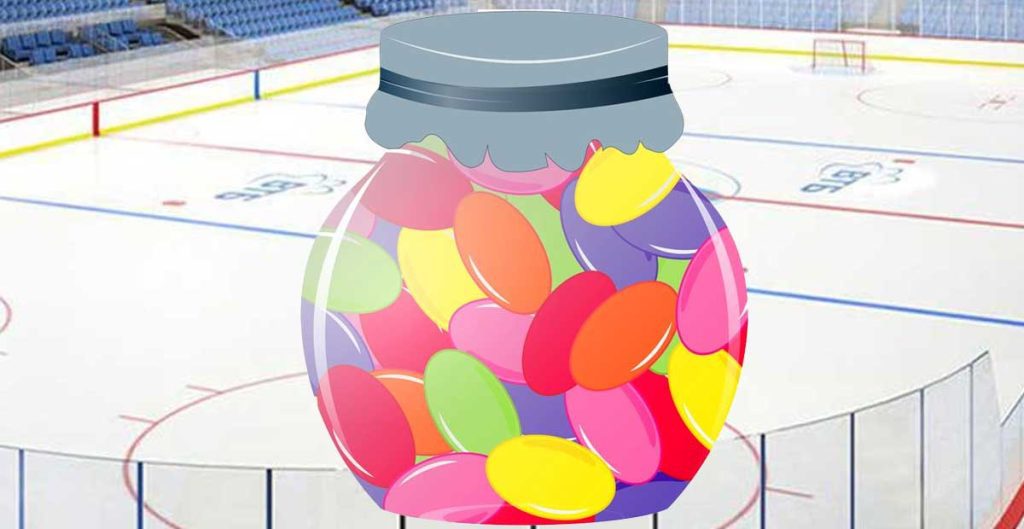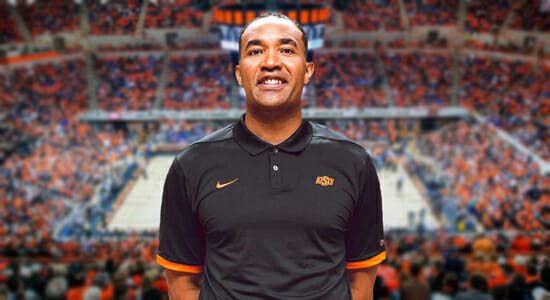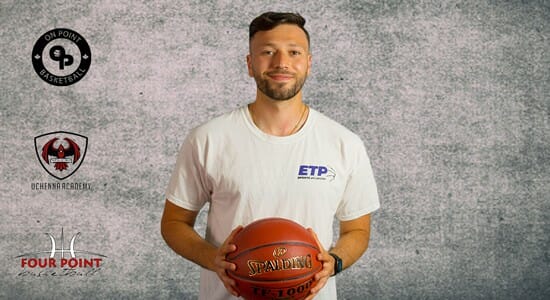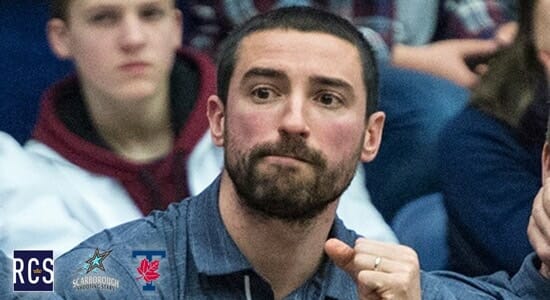
Sami Jo Small Finds Value in Her Role No Matter What Size
Sami Jo Small | Former Goaltender | Team Canada Hockey



That is what I’m most proud of with what that team accomplished not only winning the gold medal but changing the mindset of Canadians to open up hockey to women for the first time for many people.
Sami Jo Small
Former Goaltender
Team Canada Hockey
What was your experience like playing for the Stanford men’s club hockey team?
Nobody goes to California to play hockey, let’s just start with that. I played in the ACHA which is the American collegiate hockey Association.
I never intended to go and play because I was on a scholarship for track and field. Hockey was just a chance to get away from it all. The league had no eligibility rules so you could be doing your masters or any education and play.
There was a great mix of talent in the league. There was a range from guys who played D1 to guys who had only rollerbladed. It was like a glorified men’s recreational league team. It came down to the luck of the draw if you got good players at your school that year or you didn’t.
My first year we had a very strong team and slowly those players graduated and we weren’t as good. For me, it was just a chance to play. Practises were late at night, we travelled on the weekends when I was not doing track.
For those couple of hours, I didn’t think about being a scholarship athlete or an engineer and how stressful that was, I just played. Had I not had that experience when I was young I might not have played professional hockey into my 40s.


How did the opportunity arise to play for team Canada at the Olympics in Nagano in 1998?
The women of my generation all have very interesting stories that are not necessarily straight paths to the national team. At the time there were no scouts and there were no tryouts. My first introduction to a female that played was a woman by the name of Susie you owner who is from Winnipeg. She played on the very first women’s national team in 1990 who wore pink jerseys. I met her in 1991 and it was strange because at the time there was no way to research who these women were.
The Internet did not exist yet and YouTube was not around to watch highlights of players. Meeting her made me realize that there were other girls playing because I have not seen many girls play when I was growing up. She kept trying out for the national team in the 90s and that was the first exposure I had to other girls playing.
In 1997 that was the first time that they had Olympic centralization in Calgary which is where players would move from their hometown to train for the Olympics. In order to get to the tryout there were regional camps for the first time ever and you could just sign up.
It wasn’t like there were scouts or anything. However I did not know about this at the time because I was busy in California. It wasn’t until the summer of 97 that I was hoping to make the national senior team for track and field. I competed on the national junior team for four years and then at the national championship I did not perform well. I triple faulted and do not meet my expectations, unfortunately.
While I was driving back to Calgary I visited a friend who lived there. I’d noticed that there was a women’s hockey summer camp. When I did not make the national senior team in track and field I decided to take a step back, visit my friend in Calgary and go to the women’s hockey camp. Despite the level of play being lower than what I was used to, I met a coach there who had offered extra sessions to me with girls who are trying out for the Olympic team.
After I went to the session I returned home to Winnipeg. When I returned home the coach who ran the session called me to ask more about where I played. He said that I should fly back to Calgary to attend a session where the Olympic team coaches could see me play. After being invited back to more sessions with the Olympic team coaches I eventually made the initial trial roster in 1998. That is similar to many of the other stories of women who made that team.


How did you handle being the reserve goalie knowing there is not much of an opportunity to play in the position at international tournaments?
The two times that I was the third goalie were very different. The first time was in Nagano 1998 and my first Olympic Games and the second was in Torino 2006.
The excitement around the first tournaments was pretty palpable because you felt you were a part of something bigger. It did not necessarily mean that things were easier but I knew the expectations of my role.
You train hard, push the other goalies and push the other players to make the shots they need to score. I was there to make others around me better.


What was the toughest part of being in your position?
At the second time being the third goalie it was much more difficult. I had been starting goaltender before and knew what it meant to be between the pipes in big games. I had to grapple with the emotions of not playing and finding a way to still have value in my role.
What helped me through that were the connections I made with my teammates by finding joy through them, living vicariously through them and in big moments cheering them on. It was certainly much more difficult but I felt that the role I had created was one of value.
I could bring something to the team still and was able to push others around me to be better and make the team better as a whole.
Who helped you the most during your tenure with team Canada?
I would say my teammates, but a specific teammate would be Jennifer Botterill. I lived with her for three different Olympics and with her also being from Winnipeg I knew her family from before.
She never liked to talk hockey and always preached about having balance in your life. Since I was such a hockey fanatic it was good to have someone like her to do other things with and to get away from the rink.
At times and in the Canada system we would talk about hockey all the time that I’d get lost in that easily. We were a tight knit group of girls despite the fact that we were always in tryout mode because there was no job security. That can sometimes turn a team against itself but with us it really turned us to each other.


What was it like being a part of the first ever Canadian women’s hockey team to win the gold medal at the Olympics in Salt Lake City 2002?
Being a part of the experience was incredible and amazing knowing the amount of work and effort we have put in to see the fruits of our labor. That year we had lost every game to the Americans so no one expected us to win that final.
However, because I did not play in that final game it certainly changed the feelings. It did not mean it was not impactful but it is different when you were on the ice versus the bench.
When I look back on my career the games that I was playing in the world championships carried a different feeling. When you’re playing in the big game it makes a difference when you feel you’re making a difference instead of being in a cheerleading role.
While I was proud to be a part of the team the lingering feelings about that game are different.
I think more about the impact the gold medal had back in Canada and how many people watching that game were seeing women’s hockey for the first time ever.
The attitude of people changed from watching women’s hockey on prime time since Nagano was in the middle of the night with the time change. This impacted the way that moms and dads looked at considering putting their daughters into hockey because of that event.
That is what I’m most proud of with what that team accomplished not only winning the gold medal but changing the mindset of Canadians to open up hockey to women for the first time for many people.


You recently released a book in September 2020 called “The Role I Played” reflecting on these great teams you were a part of. What was the most enjoyable feeling that you’ve had while looking back on your playing career when writing this book?
I think without the opportunity to write about your experiences negative feelings will linger especially as a goalie.
Do you think about the ones you missed, the games you lost, the games you got polled? What rating did for me was see the good see the big games see the big saves and made me think about the people that I went through the journey with and the sacrifices they made to be on the world stage.
In the end with writing a book what it showed me was the amount of joy that I got from simply playing. I can now reflect back on my career with fondness. I wouldn’t have thought about the rules that I played if I have not written this book.
There isn’t just a moment that stands out but the opportunity to find joy through sports and that I might not have seen all the good things had I not written them down.


It was a thrill to speak with Sami Jo Small about her Team Canada hockey career and how that has parlayed into her book “The Role I Played”. Having known about her work from both being from Winnipeg, Sami Jo’s legacy from her book will live on far longer than anything else because the impact of those teams on women’s hockey is unmatched. The lessons she learned from being in tough positions in a high-level sport can positively impact athletes going through a similar experience.
The Latest







